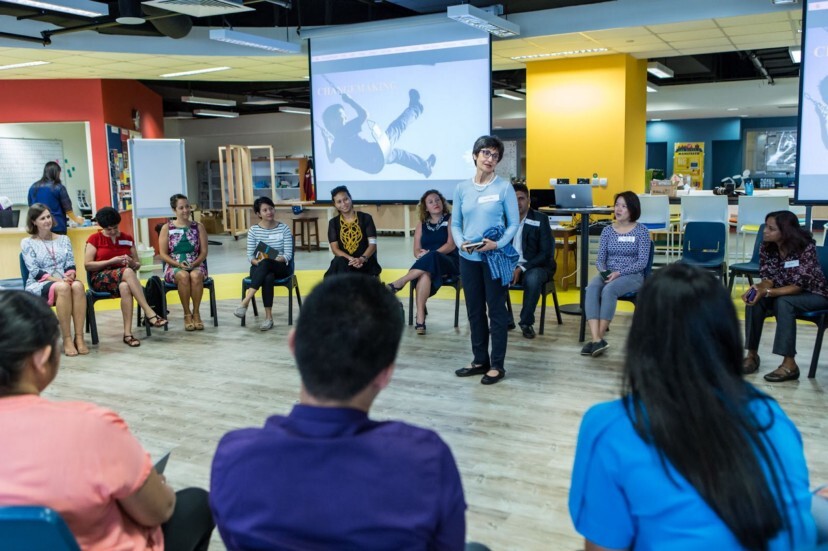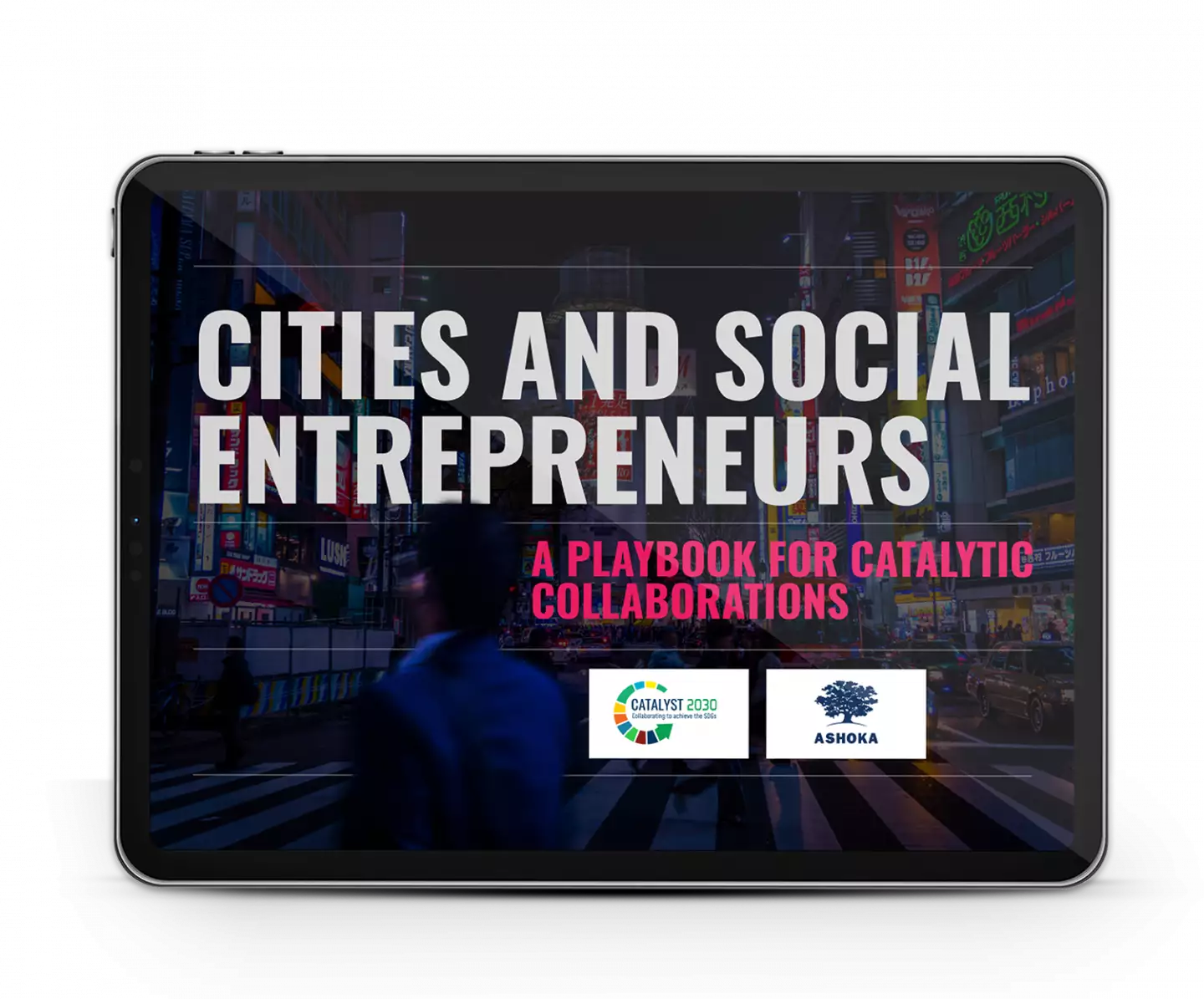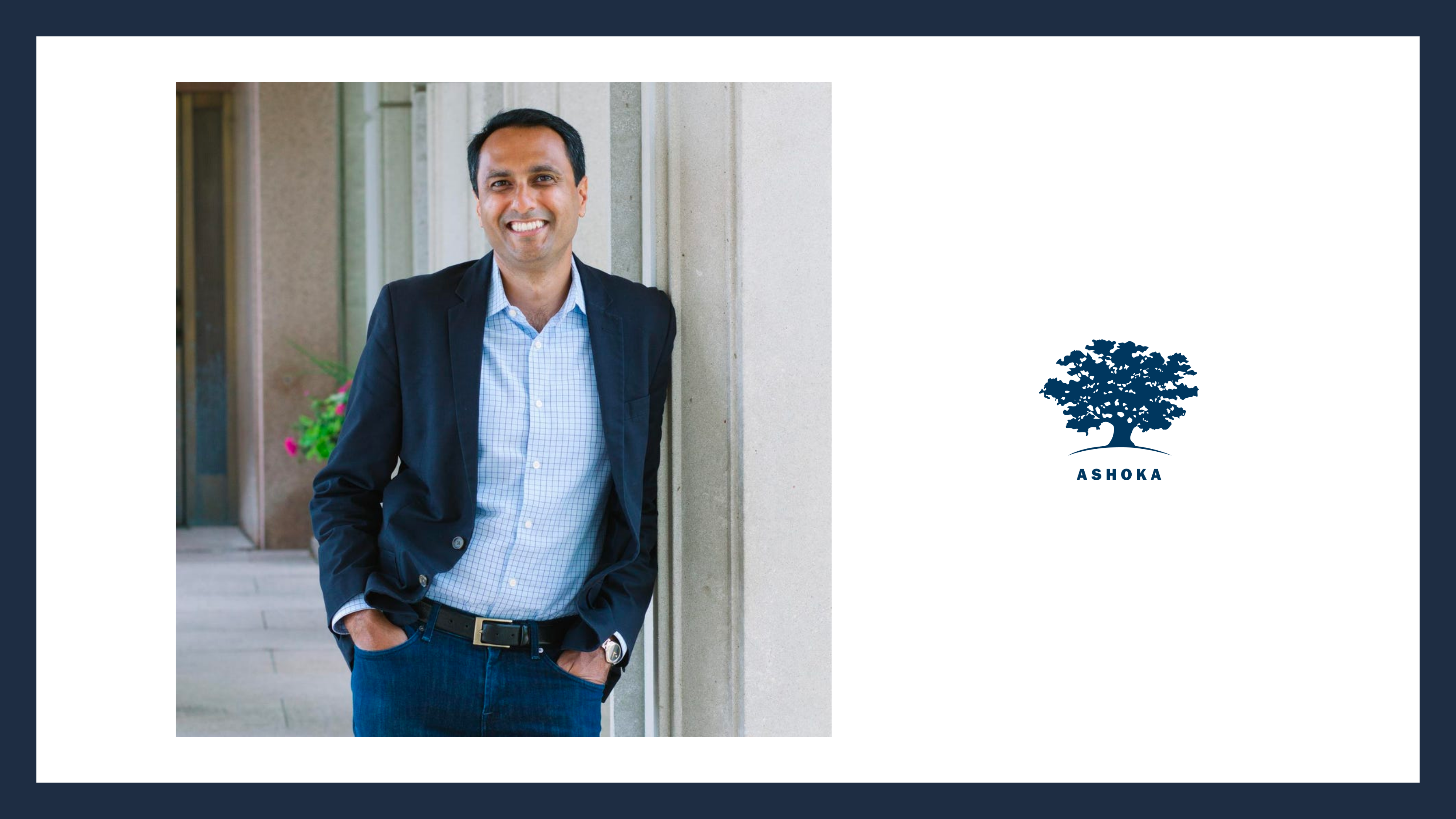
Ashoka Fellows worldwide are working on systemic responses to the pandemic. As the crisis has deepened in India, many social entrepreneurs shifted to urgent responses that ranged from decentralizing supply chains for oxygen & other life-essentials, to addressing mental health & care gaps, and expanding vaccine access.
Ashoka’s Manmeet Mehta spoke with Fellows Anshu Gupta, Ashwin Naik and Priti Krishtel to hear about the crises — both visible and hidden— that Indian changemakers are working to address, and what’s ahead. You can listen to the full conversation here. Here are a few highlights:
Looking beyond the headlines
Anshu Gupta and the team at Goonj have repurposed their existing nation-wide decentralized supply chain infrastructure towards a rapid Covid-response, particularly across India’s villages. Anshu explains more:
Meanwhile, Ashwin Naik and the team at Manah Wellness have been focused on rapidly deploying mental health support. Another silent crisis is brewing: mental health.
Priti Krishtel and I-MAK have been one of the leading voices working to reform the global patent system to ensure greater access to Covid vaccines, treatments and medical equipment.
Equal access is the key
Availability of quality health care is not the top issue in India, unequal access is. Class, caste and proximity to cities are a big determinant of who gets care and who doesn’t.
Priti and her team have been leading voices urging the recent announcement by President Biden that the U.S. would back a patent waiver on Covid vaccines is a step in the direction of increasing access to critical care. More needs to be done on decentralizing manufacturing capacity. Priti breaks it down:
Moving beyond oxygen and respirators
While everyone is focused on procuring oxygen concentrators, we are forgetting more basic needs such as access to paracetamol and the hunger crisis hitting Indian villages.
In the absence of strong systems, it is logical for people to do what seems intuitive, though these are often nothing more than band-aid solutions. Ashwin urges us to look beyond the surface and realize that there are less visible, just as acute crises, unfolding before our eyes. Ashwin talks more on looking beyond the surface.
The answer to solving vaccine access lies in decentralized production and distribution. It is simply not feasible for a few companies in high income countries to centrally produce and distribute vaccines to 6 billion people. Priti explains here the need for decentralization.
A country run by volunteers
As the health system has crashed, Indian citizens have bravely stepped up to fill the gaps and care for their loved ones.
But is there such a thing as too much resilience? Anshu believes resilience can be a form of compromise with hidden costs, as he explains here.
The road ahead: what can philanthropists do?
Generations of Indians are stepping into their problem-solving power as we speak. But more than changemakers, Ashwin says: “we need more question-askers.”
It is critical — even in a crisis moment — to take the long view. Invest in India’s villages, and invest long-term is Anshu’s message.
-
For those looking for more information about Ashoka Fellows’ Covid response in India, Ashoka staff in Bangalore are curating this page.


